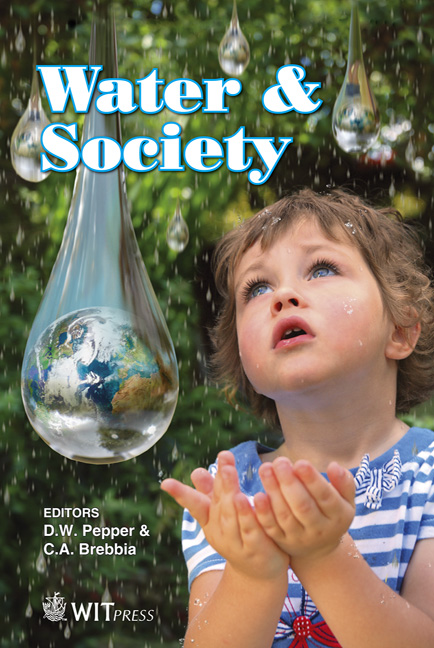Water Policy Reforms In Algeria’s Agriculture: A Review And Prospects
Price
Free (open access)
Transaction
Volume
153
Pages
12
Page Range
435 - 446
Published
2011
Size
2,523 kb
Paper DOI
10.2495/WS110381
Copyright
WIT Press
Author(s)
K. Laoubi & M. Yamao
Abstract
Since gaining independence in 1962, several policy reforms have been implemented in Algeria to address the challenges of water scarcity in agriculture. However, questions regarding the implementation and effectiveness of these policy reforms still abound today. The objective of this paper is to review Algeria’s water policy reforms in agriculture, focusing on the historical, institutional, resource management, and pricing policy dimensions. The agricultural water sector in Algeria has passed through various stages of policy reform. The first historical stage (1962-1980) was characterized by a lack of institutions, poor water supply, and an absence of demand management strategies. The second stage (1980-1999) was characterized by institutional instability, a lack of accountability, and inadequate and ineffective water supply and demand management. The last stage (2000-present) is characterized by institutional strengthening, a supply-driven approach, and inefficient water management. Overall, the impact of water policy reform on Algerian agriculture, despite recent progress, has been almost negligible in terms of the efficiency and sustainability of its water resource management. Indeed, this review illustrates a gap between principles and practices in sustainable management of water resources. It is now critical that management practices should implement the principles of sustainable and integrated resource management. Priority should be given, but not limited, to the following: establishing coordination structures; developing technical and human capacity and resources at different levels of water management; deploying significant funding resources to sustain existing infrastructures and resources rather than to invest in new water infrastructures; developing a drought contingency plan involving water users; promoting and
Keywords
water policy, agriculture, institutions, water management, water pricing, sustainability





